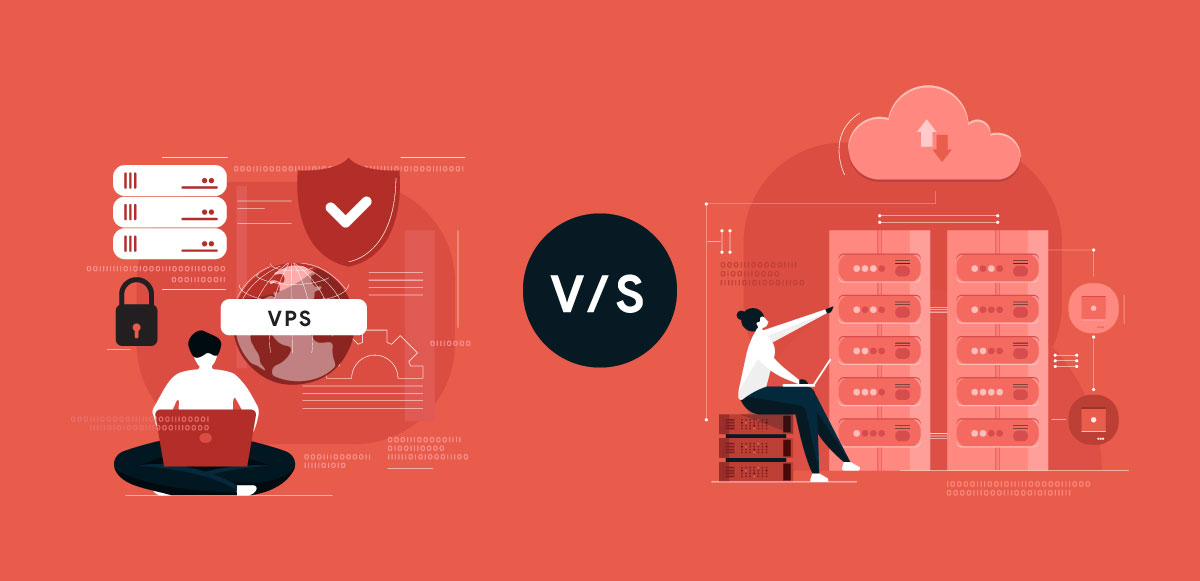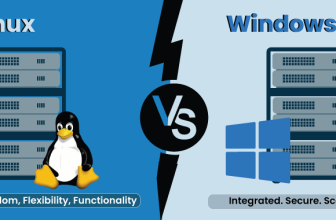VPS Hosting vs Dedicated Server: Difference and Comparison

Exclusive Offer: Save Up to 40% on Dedicated Server Hosting!
Unlock unbeatable performance and savings! Enjoy up to 40% off on our dedicated server hosting plans. Limited time offer.
When it comes to web hosting, selecting an appropriate server is of critical importance for further website or application success, stability, and protection from different types of threats and potential intrusions. Below we will discuss the key points of comparison between Dedicated Servers and VPS Hosting so that it will be easier to decide which is better for you.
What is a Server?
A server is a hardware component with computing capabilities used for data management, storage, transmission, and processing on a round-the-clock basis. It has several tasks – host websites, accumulate e-mail, compile and store databases, and execute applications. Servers are crucial for businesses to guarantee that whenever a client approaches them online, the company’s platform is stable, safe, and open.
Why are servers used?
Servers are critical elements of the operational architecture that underlie any online service or application. These act as middlemen between the users and the computer by accepting information and instructions from the user, processing these, and providing output in the form of information or services as the case may be.
The Importance of Servers
The dependability of the server determines the performance and satisfaction of its users as well as the overall functioning of the business. A properly optimized server provides uninterrupted work and maximum productivity, effective data handling and fast access to it, reliable protection from leakage and attacks, and scalability to accommodate increasing volumes of data and traffic.
Types of Servers
Servers can be categorized into three primary types: the server hosting solutions available are Shared Servers, where many websites are hosted in the same physical server; Dedicated Servers, which allow the client to rent an entire physical server; and Virtual Private Servers, where a real physical server is logically divided into several virtual servers, but the client can manage each of the virtual servers independently.
What is a Dedicated Server?
A dedicated server is an actual server where a client has physical access and the entire hardware is dedicated solely to them. This setup can give full control of the server that it is using, the processing power which is the CPU, the memory or RAM, and also the space for storage. Some key characteristics of dedicated servers include:
- Resource isolation
- Improved efficiency
- Lower susceptibility to attacks
- Reliability of the dedicated hardware components
- Full administrator access to both the software and the hardware of the server
What is VPS Hosting?
VPS (Virtual Private Server) hosting is a service that is located in the middle of the shared and dedicated hosting services. A VPS is a virtual environment formed through server subdivision where each server possesses its resources but runs on a single physical server. VPS hosting is ideal for medium businesses or websites that will require more capabilities and privileges than shared hosting but at the same time not want to pay for dedicated hosting. There are notable attributes of VPS hosting:
- VPSs running on the same physical server cannot interfere with each other.
- Resources can be easily scaled, the root access allows independent configuration of software.
- The cost is cheaper than hosting a dedicated server but it is more than a shared hosting type of service.
- Each client receives his or her environment to host the operating system and is authorized specific amounts of resources.
Comparing Dedicated Servers and VPS Hosting
| Aspect | Dedicated Server | VPS Hosting |
|---|---|---|
| Performance | Dedicated servers offer better speed and dependability since the strength of a specific server is directed in terms of the customer. | VPS hosting is also quite decent in performance; however, since many VPSs share the same hardware resources, there can be slowness in performance during high-traffic months. |
| Management | Dedicated servers are fully managed, allowing the firm to directly modify server configurations and hardware/software features as needed. | VPS hosting grants full root access, enabling users to control and customize the server similarly to a dedicated environment. |
| Security | Dedicated servers are highly secure as the entire server is used by a single client without any sharing of resources. | Though VPS clients operate in isolated environments, sharing the physical server introduces potential risks. |
| Applications Used | Ideal for high-performance needs like e-commerce, gaming, big data processing, and enterprise-grade data centers. | Suited for websites and applications with moderate to heavy traffic that do not require full hardware allocation. |
| Cost | Higher cost due to dedicated hardware and resources. | Lower cost, as the physical server is shared among multiple users. |
| Customization | Provides complete control over hardware and software configurations, allowing full customization based on business needs. | Offers flexibility but is limited by the physical server and hypervisor that controls virtual environments. |
Similarities
Both dedicated servers and VPS hosting let the user have considerable control over the server and provide the root access for modifying the environment. Both offer “virtual” spaces where one client is not likely to impede proceedings by other clients.
Conclusion
To sum up, dedicated servers offer the highest site performance and absolute control as well as enhanced security and reliability, which makes these services attractive for large enterprises with increased traffic and requirements for server resources. VPS hosting gives a good balance between price and performance; it is more economical than dedicated hosting while providing all the required features for medium-sized business organizations. Therefore, recognizing the differences can help you make the right decisions to make your website or application seamless. Thus, by taking into account the customer’s expectations at present, as well as the future development needs, one can choose the type of server most suitable for the specific business.







